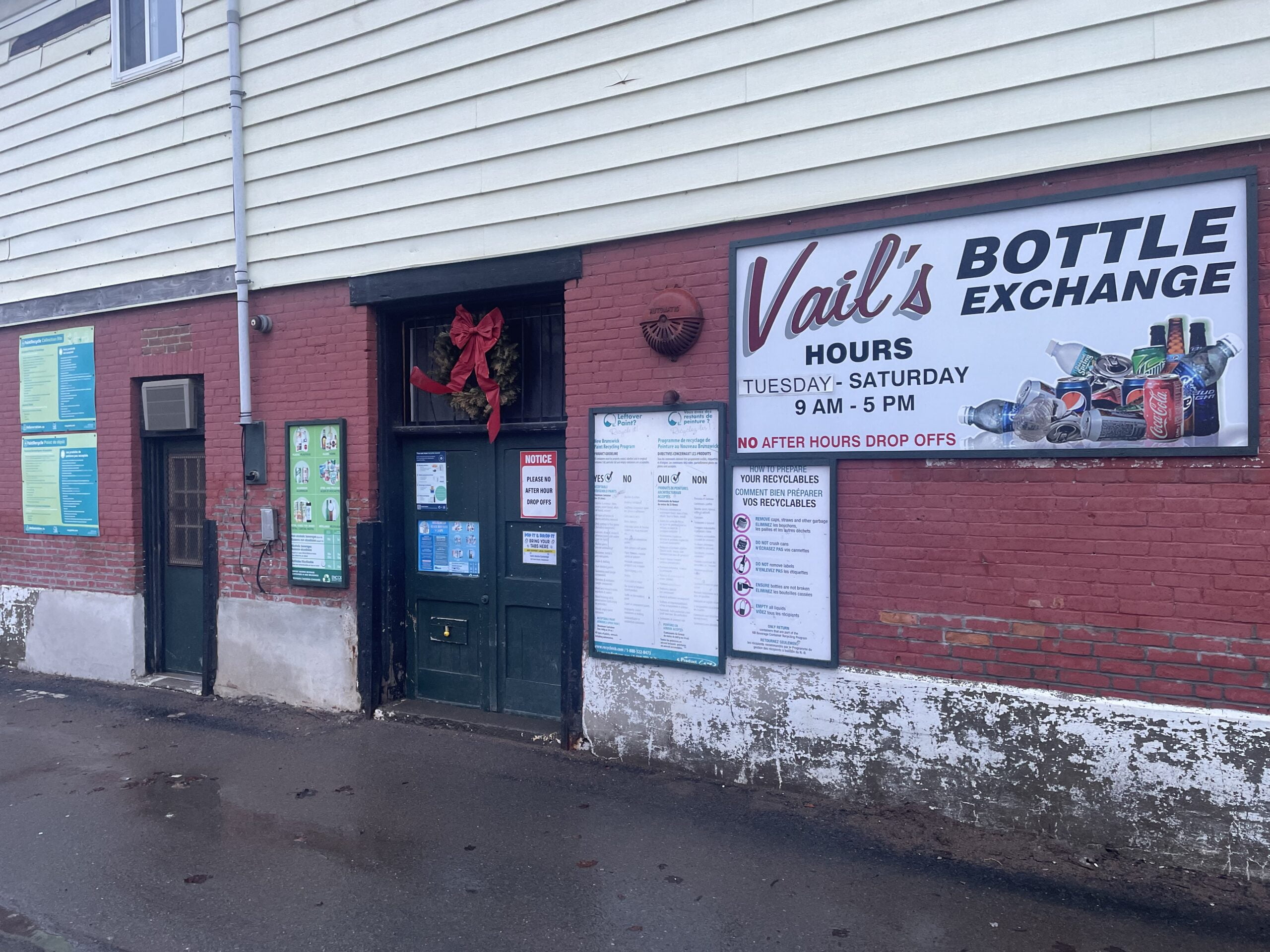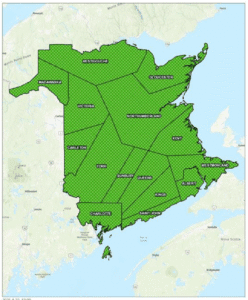Product hoarding and new regulations could see some N.B. depots close their doors
New Brunswick consumers will get more money this spring for their cans and bottle returns, but depot owners are feeling the pinch in the lead-up to provincial changes to the beverage recycling program.
For over 30 years, consumers paid a 10-cent deposit on all non-alcoholic beverage containers, with a 5-cent return; consumers paid a 20-cent deposit on alcoholic beverage containers, getting 10 cents back. Starting April 1, consumers will get the full deposits upon return: 10 and 20 cents per container, respectively.
Debbie Vail-Carr operates Vail’s Bottle Exchange in Woodstock. When the government announced the changes on Nov. 3, 2023, she saw a dramatic decrease in returns.
“When they announced it, it wasn’t even approved (by government) at that point, and people were hoarding bottles and cans so they could get more,” she explained.
There are 69 depots across New Brunswick. Vail-Carr said the early government announcement threatened many of her colleagues’ businesses.
“I’m lucky. It’s low, but I won’t have to lay people off. But so many people are waiting, and some owners can’t keep their employees without product coming in, but I’m really worried about April 1. We’re going to be inundated when the change happens. It’s going to be a real mess,” said Vail-Carr.
Since the early 1990s, the redemption program for non-alcoholic beverage containers was administered through the New Brunswick Beverage Containers Act, Recycle NB, and Encorp. In 2023, Encorp, out of Moncton, created a not-for-profit called Encorp Atlantic/Atlantique. On April 1, 2024, the Extended Producer Responsibility program will replace the current beverage container program. Recycle NB will oversee the new model, while Encorp Atlantic/Atlantique will become the official agent for non-alcoholic and alcoholic beverage container recycling management in New Brunswick.
Vail-Carr says it’s not just the hoarding situation that has depot owners concerned.
“Without product, we can’t pay our bills. I’m lucky, because I haven’t had to lay anyone off, but we’ve been hit with multiple changes. We are now having to deal with a 55 cent increase in minimum wage, plus new regulations that will come into affect that will impact how we do business,” said Vail-Carr.
Bruce Rogers is President of the Eastern Recyclers Association. His organization represents redemption centre owners in Atlantic Canada.
“There are some who won’t survive this,” Rogers said when he reached his office in Halifax.
“First, there is the hoarding of product. Then they (Encorp Atlantic/Atlantique) want you to have two million in liability insurance,” explained Rogers. “You have people trying to transition from what was a private business model to a government regulated model. Owners used to operate under a license issued by the New Brunswick Department of Environment, and that was usually a five year contract. Now, Encorp is only offering a two-year contract without renewal detail, which creates suspicion and gives centre owners little comfort, especially if they are trying to do financial planning or wanting to sell their business.”
Rogers said Encorp Atlantic/Atlantique will also install point-of-sale equipment in businesses and isn’t taking responsibility for the system.
“It opens owners to liability issues,” said Rogers. What if the system catches fire? Who’s responsible? The owners will be the way the contract is written. Then there are space issues.”
Rogers explained that some owners have been operating in locations with less square footage than required by the new contract.
“You have 32 years of history, where people operated their business a certain way. Now all of a sudden, you are required to have 600 square feet of customer space, and a certain size of warehouse space.”
Rogers said his organization is trying to meet and negotiate with Encorp Atlantic/Atlantique but is unsure how far it will get.
“The (provincial) government has basically washed their hands of it. There has been little consultation about the changes. We’ve talked to them about the hoarding and basically they’ve told us they don’t see any evidence. To put it lightly, that’s hogwash. We have the numbers. We are seeing that business is lower than normal. The government, sadly, has turned a blind eye to this,” said Rogers. “As for Encorp, they’re trying to appease government, and that’s not helping us.”
However, Rogers admits there are advantages to the new program.
“For years, studies have shows that people aren’t happy to get part of their deposit back. That should increase numbers,” he said.
Rogers said the new program would significantly increase recycling rates if Encorp Atlantic/Atlantique could work with redemption centre owners.
“They are automatically looking for people to be open for eight hours on Saturdays, and owners have tried different hours and found what works for their community. Then, there are the programs run by organizations like CIEVA. Change can’t happen overnight. Business owners have invested their life savings into their businesses, and we all want to improve the program and make it work, but as with any big change, you don’t do everything the first day,” said Rogers. “You work things out over time. This has been difficult for owners.”
Encorp Atlantic/Atlantique CEO Pierre Landry said the decision to go with a two-year contract was related to the government.
“There are only one and a half years left in the government agreement, so we are just honouring what’s left,” said Landry.
When asked about the new depot space requirements, operating hours, and point-of-sale equipment, Landry said they are all part of a plan to improve customer experience.
“A lot of work has to be done in New Brunswick to modernize the redemption centre network,” the CEO said. “There is a balance between consumer experience and consumer access. New Brunswick has a very low-performing program compared with other provinces.”
Landry said the new not-for-profit is looking at the big picture.
“We’re not worried about the current customer base. All data we’ve collected says if you are under the age of 45, you don’t have time to go to redemption centres. We have to rethink access for consumers.”
The River Valley Sun contacted the Department of Environment and Climate Change about Vail-Carr and Rogers’ concerns about the new agreement and consultation.
“There has been extensive engagement with redemption centres over the last four years and they will continue to operate under the new model based on service agreements with the producers,” wrote department spokesperson Clarissa Andersen in an email.
“It is expected that using the new model with a full refund will improve container recovery rates, consumer accessibility and experience.”














